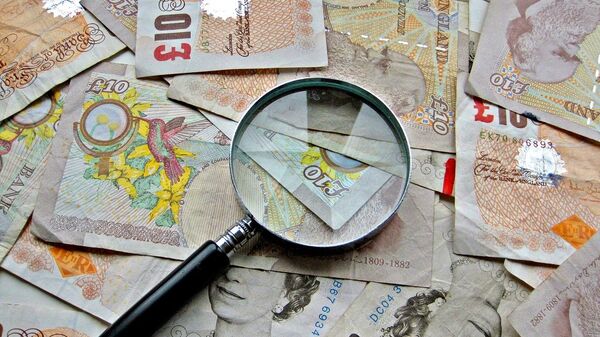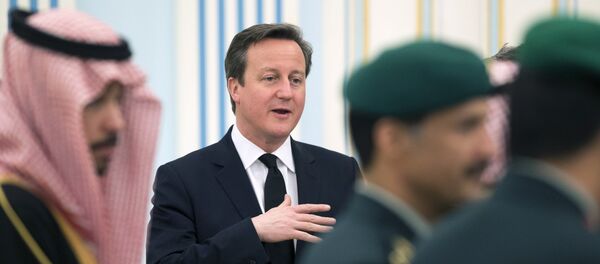Kristian Rouz — The UK’s economic expansion slowed below expectations in Q3 as international headwinds might be taking their toll on industrial production and construction, while other sectors fared relatively well.
The steady growth is still there, but projections into the next year suggest a slowdown might persist, with more overseas shocks to the economy ahead.
The UK’s GDP added 0.5% quarter-on-quarter in the July through September period, which is slightly below the previously forecast 0.6%, as reported by the Office for National Statistics (ONS). The Q3 figure is also below the previous quarterly result of 0.7%, indicating a slowdown in the economy.
The economy grew, however, as services, the largest sector of the UK’s GDP, added 0.7%.
The British industrial production is now in recession and manufacturing has now fallen for three straight quarters, and down 0.9% during the first nine months of this year. New orders and shipments were hit by the weakening international demand, mainland China, in particular. Further pressure on British exports is stemming from the strength of the sterling. The UK now finds itself in a situation similar to that in the US, where a strong national currency is impairing the international performance of the biggest export-oriented corporations.
Overall production slowed to 0.3% from 0.7% in the UK, still in the positive territory, but the lagging manufacturing is a concern. The Chinese risks persist: Beijing, once the biggest importer of hi-tech industrial goods, along with technology and know-how, is struggling to remodel its national economy to be based on domestic demand.
“GDP is 0.5%. The UK continues to outperform other major economies. But global risks mean we go on with tough decisions to live within our means,” George Osborne, Chancellor of the Exchequer of the Conservative Party, noted on the occasion.
As the global slowdown lingers, the next quarter’s figures are promising to be even softer. However, there is no risk of a full-blown recession in the UK for now as this year’s growth is steadily heading for the more than convincing 2.3-2.4% — far above the Eurozone’s average.
According to the ONS, the decline in construction is partially attributed to harsh weather conditions in August, while national manufacturing is losing competitiveness due to both the sterling’s appreciation and the emerging markets’ financial instability.
Meanwhile, the Bank of England (BoE) might postpone its hike in base interest rates from early 2016 to a later date. Nonetheless, such a decision will be motivated by the US Fed’s behavior: should the rates go up in the US, the risks to the British monetary authorities undertaking a similar move would greatly diminish.
Previously, BoE head Mark Carney said the quarterly growth should hold at least above 0.6% to allow the regulator hike rates without damage to economic expansion.
At this point, the most important economic indicator is wage growth figures. Still, even an upbeat report in this regard would not belie the fact the faster pace of the UK economic expansion is behind for a while.
The annualized GDP growth slowed to 2.3% from 2.4% in Q2, while in the US the final reading of the Q3 growth is expected to drop to 1.5% from the previously reported 3.9%. The UK output is now 6.4% higher than late last year, so the advent of the recession is hardly a major threat for now. British services also accelerated to 0.7% from 0.6% a quarter earlier.
While the international concern and weak inflation are still a major challenge to the British monetary authorities, the real economy is relatively sustainable, allowing for cautious policies adjustments.






